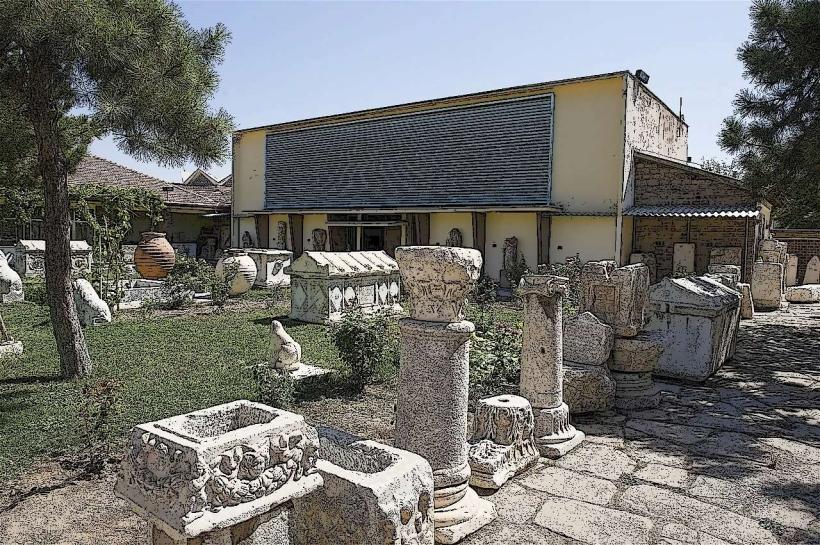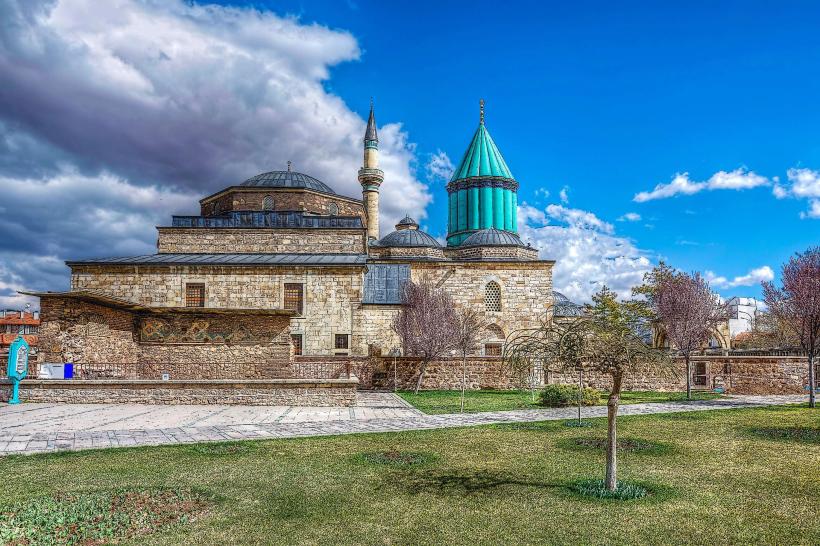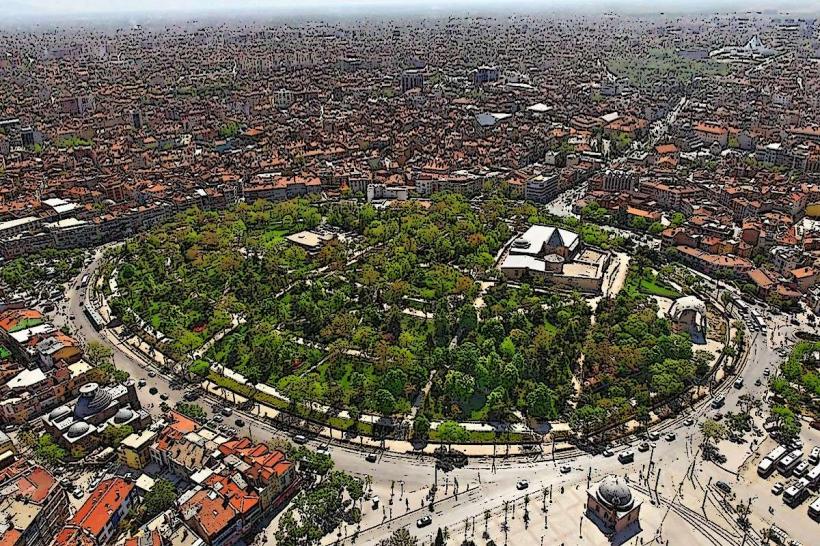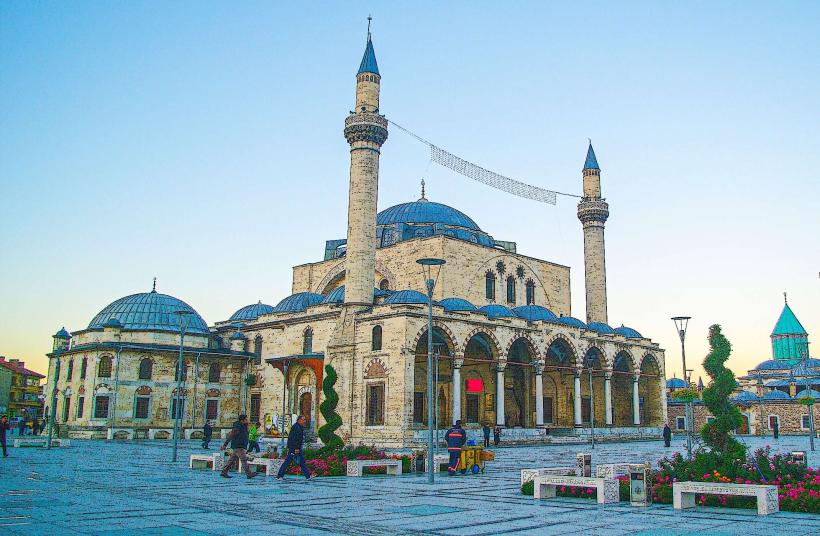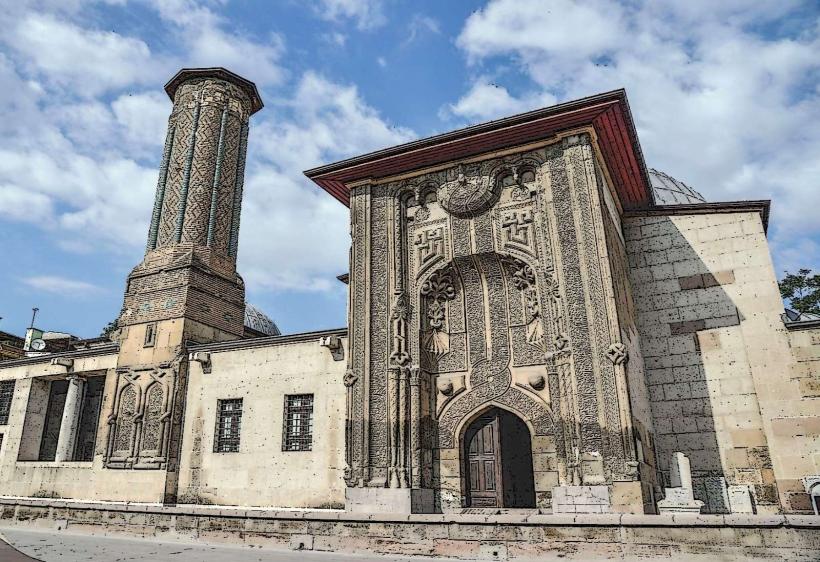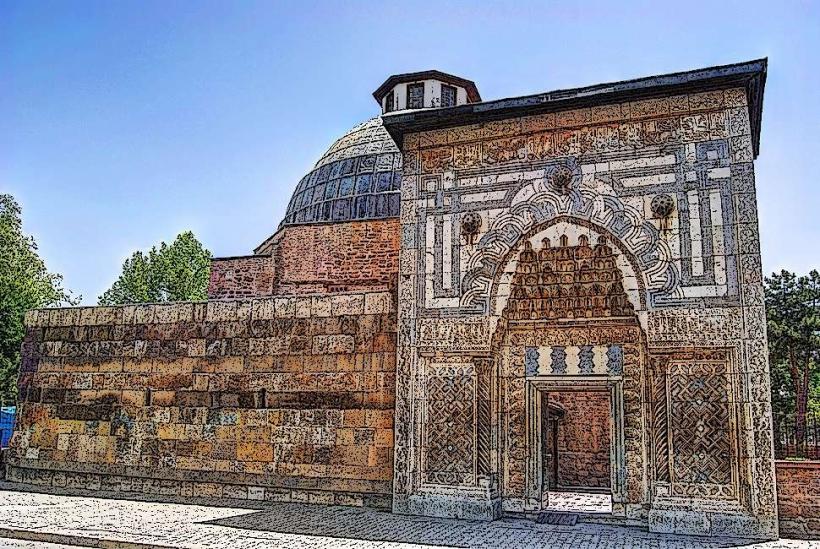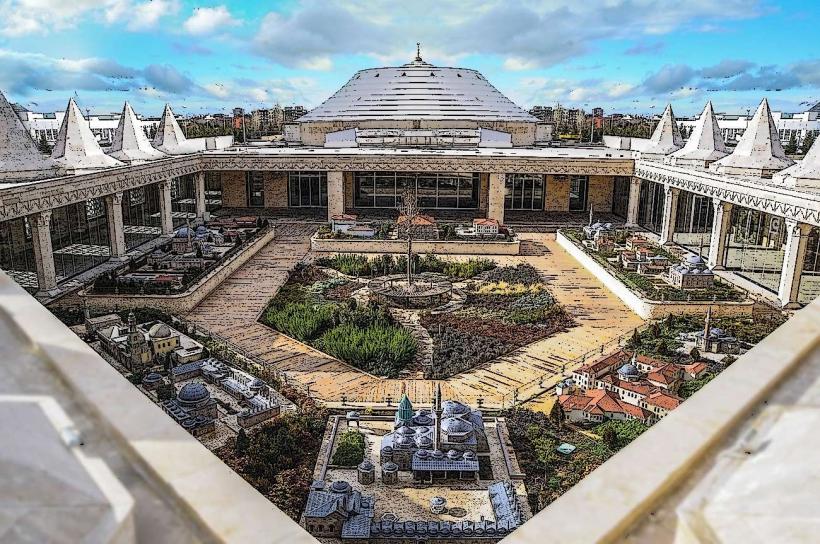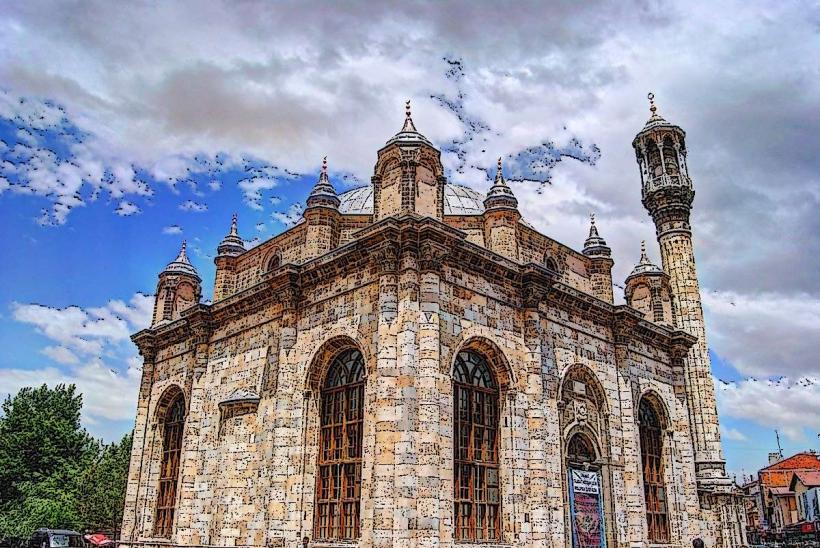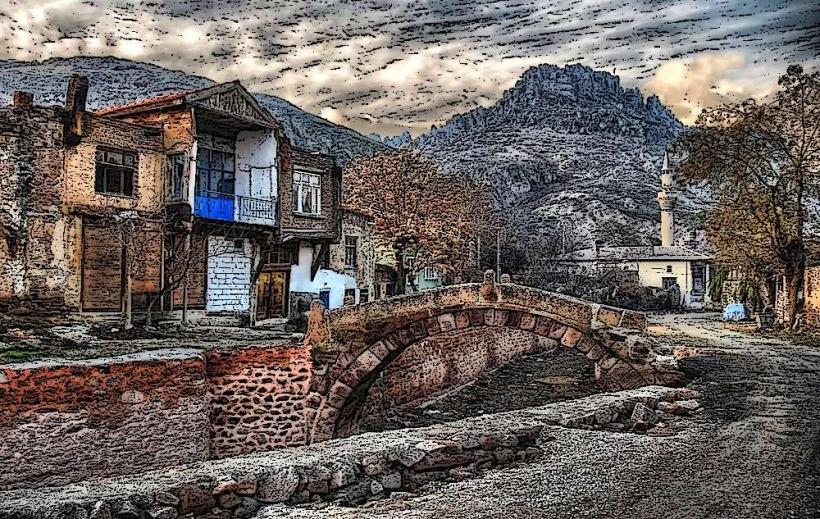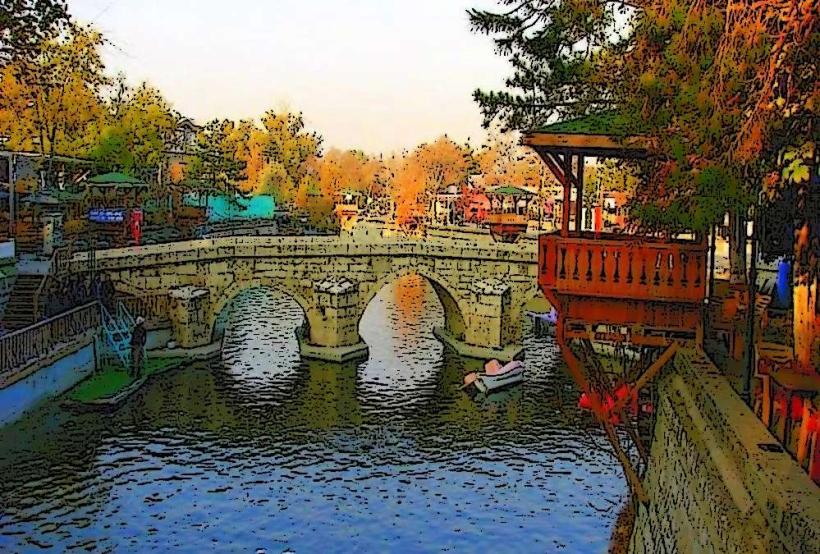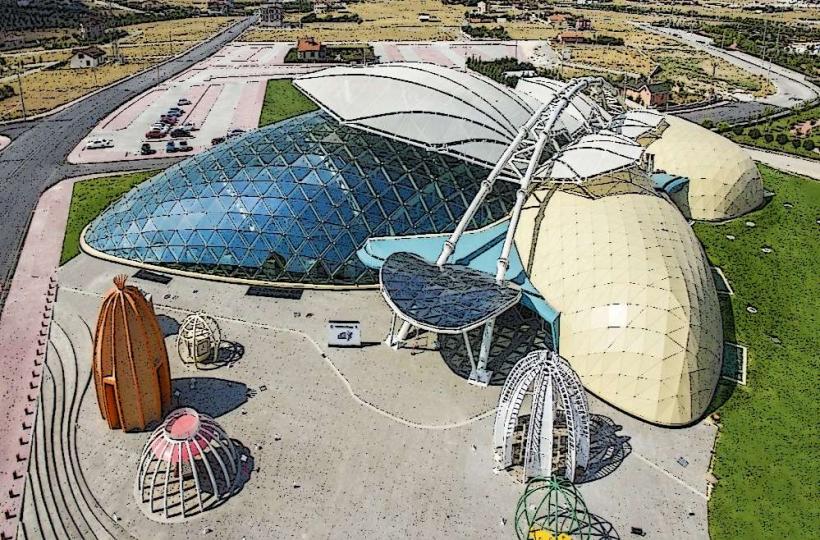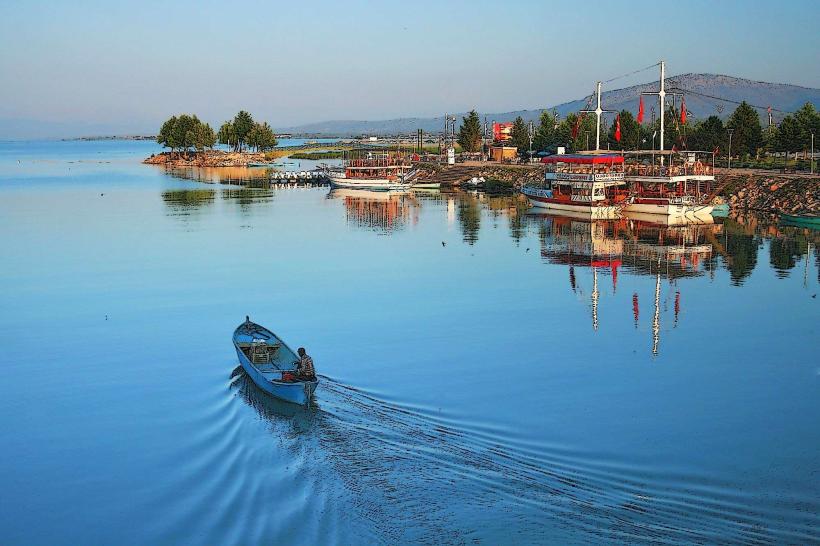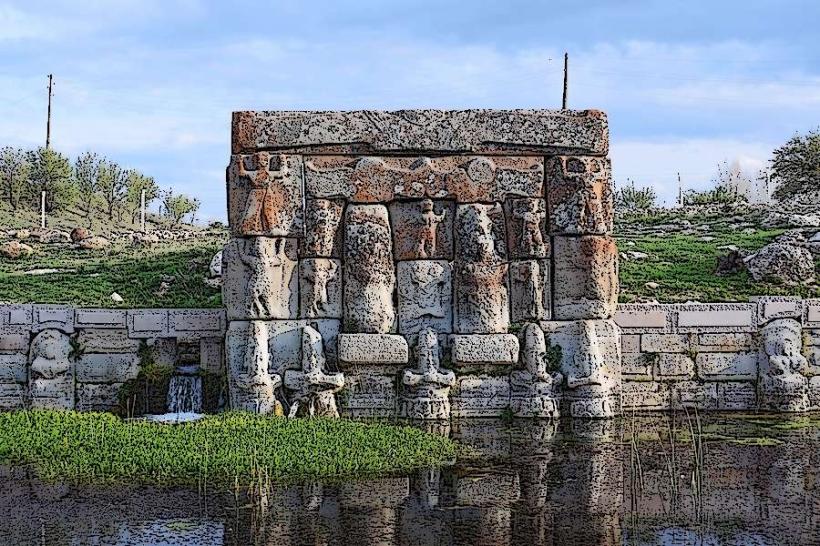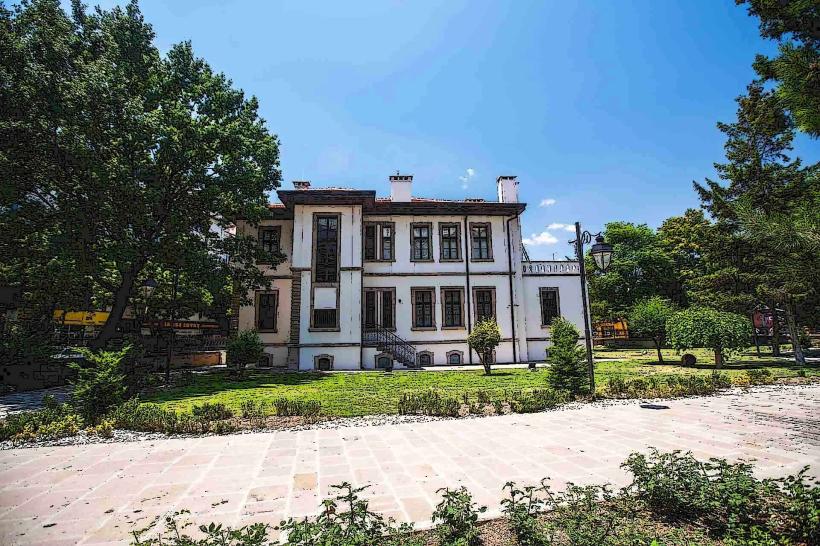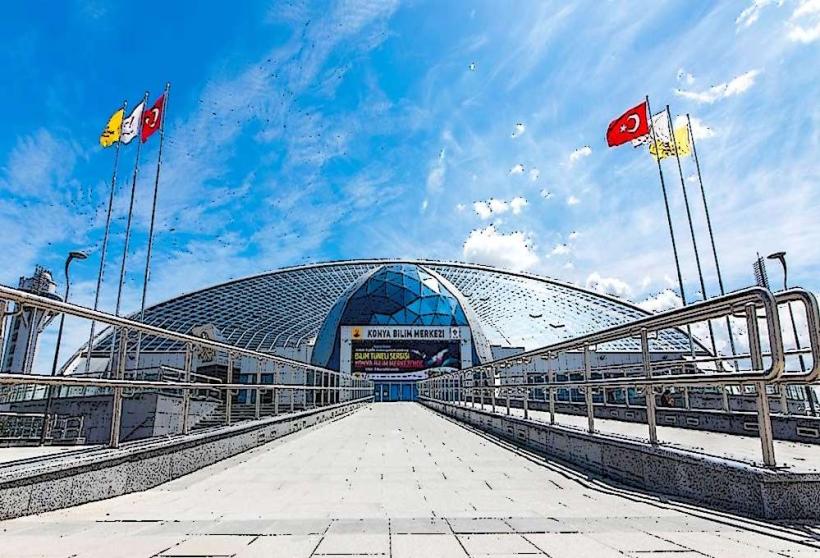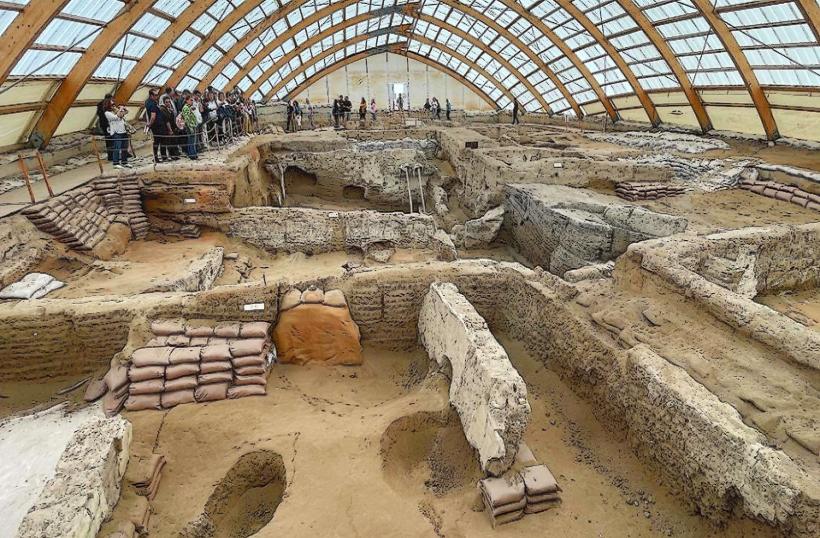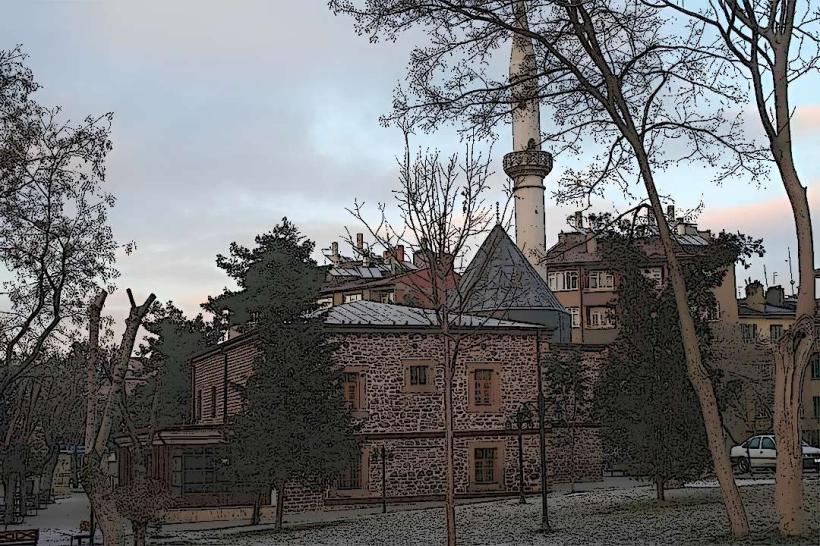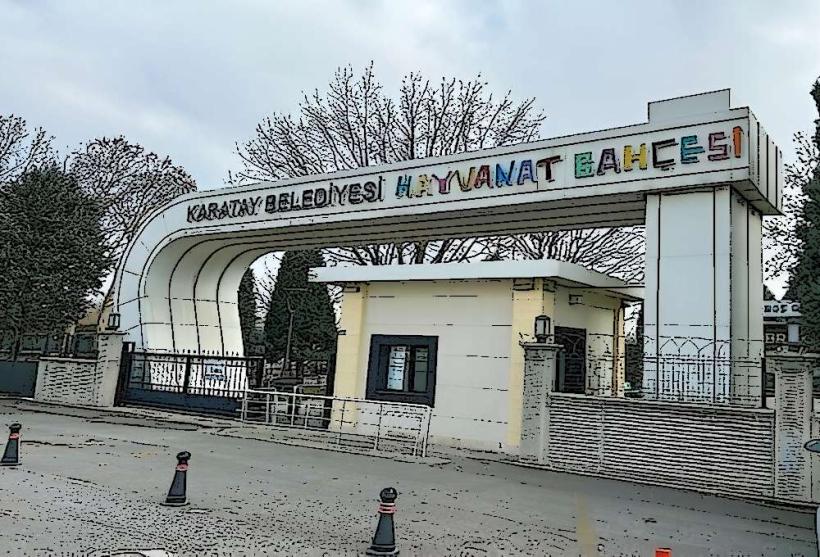Information
Landmark: Tarihi BedestenCity: Konya
Country: Turkey
Continent: Asia
Tarihi Bedesten, Konya, Turkey, Asia
Tarihi Bedesten is a historic covered bazaar located in the city center of Konya, Turkey.
It functions as a marketplace for local crafts and goods.
Visual Characteristics
The structure is a rectangular building constructed primarily from cut stone. Its roof is supported by numerous arches and vaults. The exterior walls are a light brown stone, and the interior features exposed stone and brickwork. Several arched doorways provide access to the interior.
Location & Access Logistics
Tarihi Bedesten is situated in the Karatay district of Konya, approximately 1 kilometer east of the city's main bus terminal (Konya Otogar). Access is via Alaeddin Caddesi. Limited on-street parking is available in the surrounding streets, often requiring payment. Public transport options include the Konya Tramway, with the "Mevlana Müzesi" stop being the closest, approximately 300 meters west.
Historical & Ecological Origin
The Bedesten was constructed in the 15th century, with its exact builder and architect not definitively recorded. It was originally designed as a commercial center for wholesale trade, particularly for textiles and valuable goods.
Key Highlights & Activities
Visitors can browse and purchase a variety of local products, including textiles, carpets, ceramics, and traditional crafts. Haggling over prices is a common practice.
Infrastructure & Amenities
Restrooms are available within the bazaar. Limited shaded areas are provided by the covered structure. Cell phone signal (4G/5G) is generally good within the bazaar. Small food and beverage vendors operate on the periphery of the main market area.
Best Time to Visit
The best time for photography is during daylight hours when natural light filters through the arched openings. The bazaar is busiest in the late morning and early afternoon. Visiting on weekdays generally results in fewer crowds than on weekends.
Facts & Legends
A specific historical oddity is that the Bedesten was historically a hub for the silk trade, with merchants from various regions converging here to conduct business.
Nearby Landmarks
- Mevlana Museum (0.3km West)
- Alaeddin Mosque (0.4km West)
- Karatay Madrasa (0.2km North)
- Iplikci Mosque (0.5km Southwest)

